Zaman al-Wasl uncovers the networks involved in the Captagon production in Syria and the role of Assad's men in smuggling and promotion.
The 22-year-old Sobhi, Zaman al-Wasl contacted him through a mediator, confirmed that Cannabis and narcotic pills are “easily available if you pay.”
He did not deny that he takes narcotic pills, as they are less expensive, justifying the rapid spread of drugs among young people and universities “to escape the situation.”
Sobhi, who refused to give his full name and communicate directly with Zaman al-Wasl out of fear for his safety, revealed that kiosks in Damascus sell hashish and Captagon, explaining that the main source comes from Daraa, where the manufacturing plants are located, or from Lebanon, and is distributed in Damascus and Sweida cities.
He also revealed that the town of Jaramana in the southern countryside of Damascus is the center, where a kilo of hashish is sold at about 625,000 Syrian pounds, and each 200 Captagon pills at about 300,000 Syrian pounds, satisfied that "senior officials" transport and sell to drug dealers.
Drugs as a substitute for exports
Syrian researcher Muhammad Haj Bakri reveals to Zaman al-Wasl that the Syrian regime's resources in recent years have mainly depended on drug trade revenues, "which he personally supervises", primarily the narcotic pills "Captagon" and "Crystal".
The "drug journey" has taken an organizational form, after "regular" exports have fallen to less than 600 million euros, while imports are more than 4 billion dollars.
This is what prompted the Assad regime, since 2015, to request the licensed pharmaceutical companies in Syria to increase imports of “Phenylethylene”, a stimulant substance and the scientific name of Captagon, for the drug trade to flourish, or it was revealed to the public in 2019, when the smuggling of tons of Captagon pills was thwarted. Greece was followed by drug shipments to the UAE, bringing the regime of Bashar al-Assad to the spotlight ever since.
The year 2020 was the most productive and smuggled, as large quantities of smuggled Captagon were found in the Egyptian port of Port Said, in milk containers manufactured by the Milkman Company, which belongs to Assad's cousin, Rami Makhlouf.
The major scandal came, according to "Haj Bakri", when Italy confiscated the largest shipment of Captagon in the world (14 tons, valued at one billion euros) in the port of Salerno, south of the city of Naples.
Production facilities
The Syrian researcher asserts that Bashar al-Assad's regime personally supervises the drug industry and trade, through four sides, "the Presidential Palace, the Fourth Division of Maher al-Assad, the Iranian Revolutionary Guards and Hezbollah."
In Syria, there are “dozens of facilities” for the manufacture of drugs, but the most important and largest of them is in the “Al-Bassa” area in the countryside of Latakia in western Syria, supervised by “Samer al-Assad,” the cousin of the regime’s president, and the “Medico” laboratory in Homs governorate, which is supervised by Iran, comes as the second largest A facility, followed by the "Al-Tadamon" factory affiliated with the "Fourth Division", and several factories in the "Al-Qusayr" area, southwest of Homs, affiliated with Hezbollah.
Haj Bakri added, "He has information that some factories in the industrial city of Hassia produce drug pills for the regime and belong to businessmen from Homs."
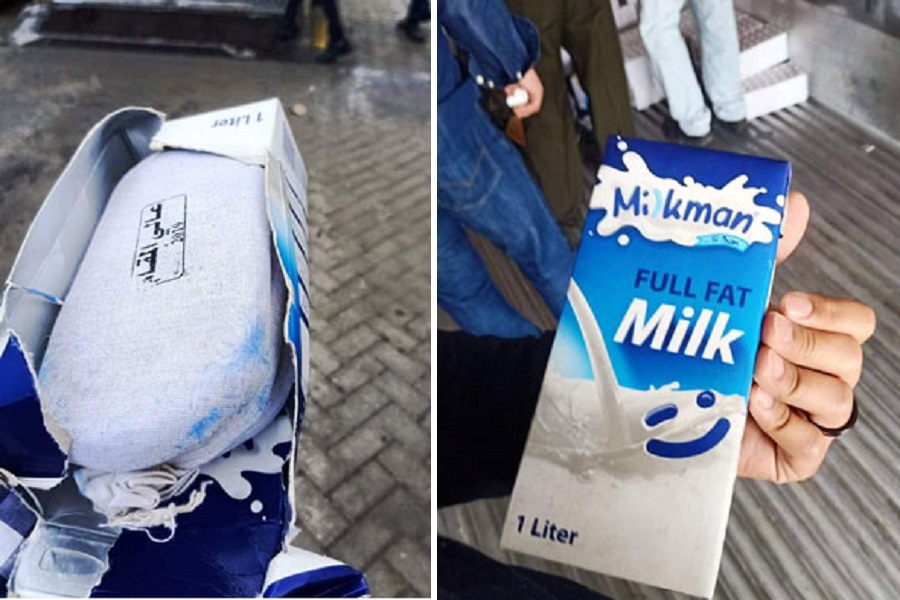
Regarding the companies and businessmen that “encapsulate and help” with drug smuggling, researcher “Hajj Bakri” reveals that the “Milk Man” company was the first, before Rami Makhlouf was expelled, but there are food companies “Mate Tea, pickles, export of vegetables and fruits, paper mills.” And even marble" as the "Kapoor" company.
Samer and Ayham al-Assad, "children of Kamal al-Assad, uncle of Bashar" are the most important supervisors of manufacturing and smuggling, as is one of the sons of Talal al-Assad and "Abdul Latif Hamid" owner of the paper mill in Aleppo, and businessmen such as, "Amer Khaiti" and "Khidr Taher", and these The names are known in Latakia,” in addition to partners in Lebanon and Iran, perhaps the most important of them, “Noah Zuaiter, Muqtada al-Hussein, Hassan Muhammad Daqo, and Ayser Shmitli,” the expert tells Zaman al-Wasl.
Billions of dollars in profits
Syrian analyst Mahmoud Hussein believes that the Assad regime is dependent on drug revenues, after the gross domestic product (GDP) declined from $60 billion in 2010 to less than $17 billion last year.
But the number of Captagon and cannabis revenues is difficult to quantify, because we do not know the production capacity, prices and distributors' profit rates, "but I think it is in the billions of dollars annually,'' Hussein added.
The analyst reveals to Zaman al-Wasl that major smuggling operations take place by sea from the port of Latakia, but this does not reduce the quantities and revenues of land smuggling, through Jordan, to the Gulf countries in particular, whether from Syria or through it, for shipments coming from Lebanon, especially through foodstuffs.
Analyst Mahmoud Hussein points out that the figures issued by the press and research centers are estimates, reiterating the difficulty of counting quantities, prices and revenues, "but drugs are the most important revenues of the regime" after the decline in industrial and agricultural production, and Syria's transformation into an importer of oil, wheat and animal production.
The Center for Operations Analysis and Research (COAR) estimated in a study in 2020 the value of Captagon exports from Syria, at about $3.46 billion.
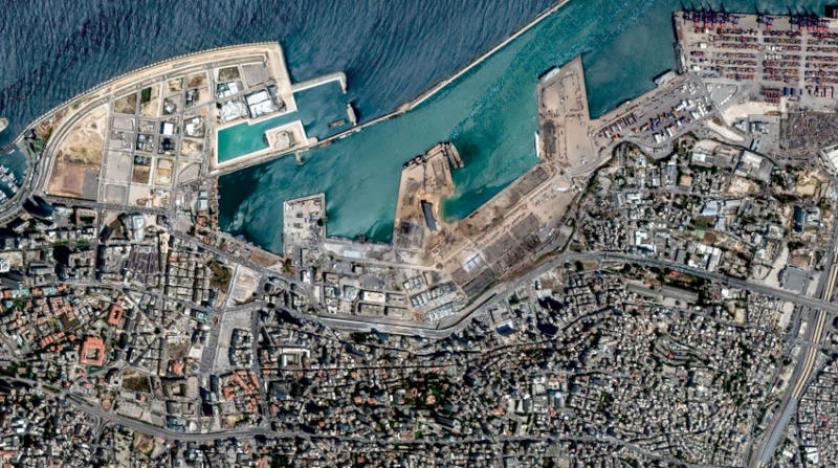
Syria has become a global center for the production of the drug "Captagon", and it has become more industrialized and technically advanced in drug manufacturing than ever before, according to COAR.
As the American newspaper "New York Times" indicated, during last year's investigation, that the "Fourth Division" of Assad's army, led by his brother, Maher al-Assad, is responsible for manufacturing and exporting Captagon.
In addition, the trade in it was led by businessmen with close ties to the regime, the Hezbollah group and other members of the Assad family.
Reasons for drug smuggling increase
Economists believe that "two things helped increase drug smuggling from Syria." The first is Arab and even some international normalization with Bashar al-Assad's regime, and the second is the restoration of his membership in the International Criminal Police.
The academic Imad Al-Din Al-Musbeh said that the Assad regime found, by opening the crossings with Jordan, an additional way to smuggle drugs into the Arab Gulf region, "although it was not stopped smuggling," noting in a statement to Zaman al-Wasl that "Assad's gains" go beyond the economy as a result of drug smuggling, as It even threatens to flood the markets to impose the Syrian vision of a solution or blackmail to return to talk of reconstruction.
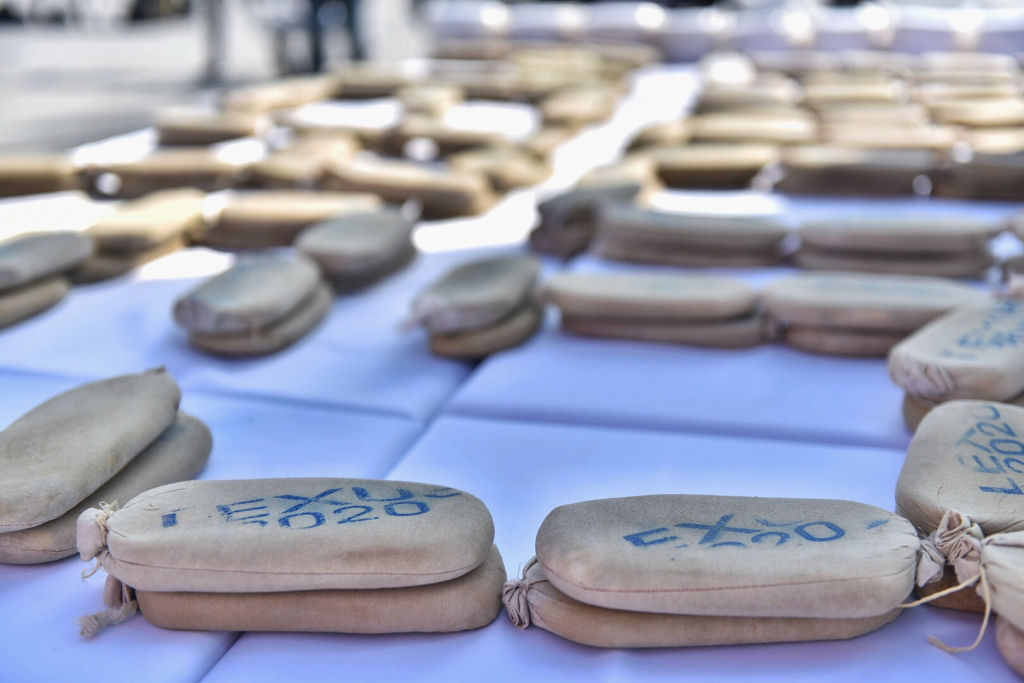
As part of the US administration’s efforts to combat this problem, the issue of Syrian drug smuggling has returned to the congressional table after Representatives French Hill, a Republican from Arkansas, and Brendan Boyle, a Democrat from Pennsylvania, submitted a new bill to the House of Representatives asking the US administration to develop an inter-agency strategy To disrupt and dismantle drug production and trafficking in Syria, and the affiliated networks linked to the regime there, after the majority in the House of Representatives voted on a law in this regard.
American law stresses the need to stop this illegal trade and dry up the sources of illegal funding, and if America fails to do so, it will leave the regime in Syria continuing to push the conflict, providing a lifeline for extremist groups, and allowing American enemies to enhance their participation there.
As the American law hinted, thwarting the drug industry and trade in Syria is part of a “political settlement of the crisis,” which Syrians warn of, and considering Assad’s possession of a “drug weapon” a factor in rehabilitating him again within the deal of political solutions.
Al-Musbah indicates that since the era of Hafez al-Assad, Syria has been a conduit for Lebanese and Afghani drugs through Iran.
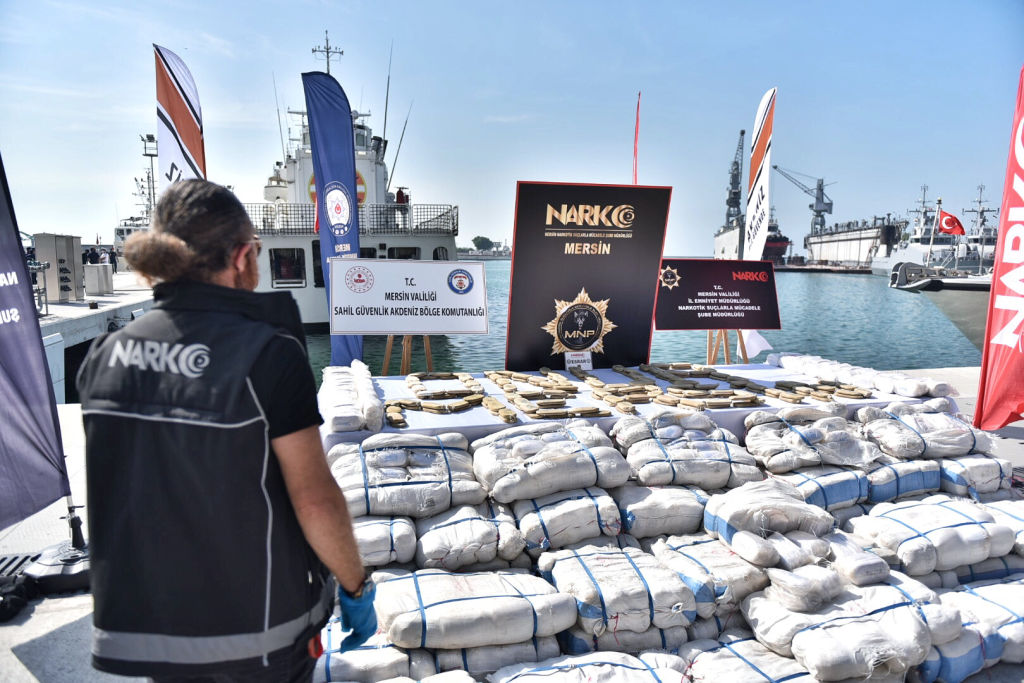
But in the time of Bashar al-Assad, it turned into a drug-producing country at the global level, to secure some resources to pay the salaries and wages of the government sector and to import some goods and products.
The academic believes that the bulk of the proceeds go to the Assad family’s balances abroad, and it is not excluded that stopping this industry and trade will be included in the settlement deal, after the increase in the activity of this trade and the “fears of neighboring countries,” especially Jordan and the Arab Gulf region.
Al-Musbeh notes that narcotic pill production plants have spread even in the southern governorate of Daraa and the cities of northeastern Syria and the parallel strip of Lebanon, even if the largest facilities are the cities of Latakia and Damascus.
It also included the illegal export of drugs to neighboring countries and the region, such as Iraq, Egypt and even Turkey, which announced last May the seizure of "the largest drug shipment in the history of the Turkish Republic" after a security operation by anti-drug teams in the port of Iskenderun in the state of Hatay, southwest Turkey.
At the time, the Turkish Minister of Trade, Mehmet Muş, announced the seizure of 1072.6, equivalent to (one ton and 72 kilograms) of the narcotic Captagon pills at the port of Iskenderun.
He also indicated that the drugs that were seized on board a ship carrying 17 cargo containers, docked in the port of Iskenderun a while ago and were preparing to complete their way to the UAE, and that the drug pills were distributed among 11 containers, where the market value of the drugs was $37,261,905.
However, Jordan, especially after opening the borders and crossings, is at the forefront of countries crossing Syrian drugs by land, abroad, which reach the limits of criminality and determination to smuggle with the power of peace.
The Jordanian army recently announced that it had killed 27 drug smugglers while they were trying to infiltrate from Syria, after the Jordanian authorities announced a significant increase in drug smuggling attempts from Syria in recent months.
The statement of the Jordanian army, on January 12, indicates that during the year 2021 only 361 attempts to infiltrate and smuggle from Syria into Jordan were thwarted, and nearly 15.5 million pills of various types of narcotics were seized, including “Captagon” and “Tramadol”, and more than 760 A kilogram of Cannabis, in addition to 2 kg of "Heroin".
Assad regime tolerates drug use
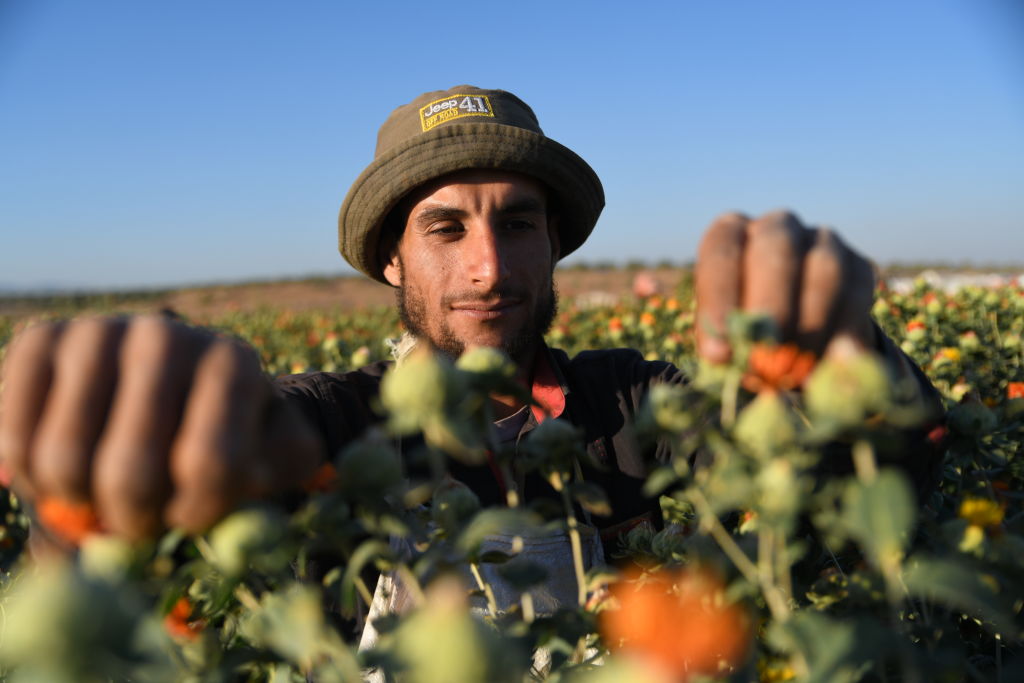
With the spread of drugs and the ease of obtaining them in Syria, social researcher Bayan Darwish says that "there is not an accurate number of addicts, but Syria has become a drug state."
During an interview with Zaman al-Wasl, she warned against the spread of drugs among young people and university and school students, both males and females. "Through cohabitation and follow-up, and according to court cases, I can say that the spread of drugs among young people is more than 50%."
The researcher considered that the decline in income and job opportunities, coupled with frustration among young people and with government condoning, increased drug abuse and reached the "very dangerous" reality.
While the Syrian researcher points out that Damascus, Daraa and Sweida are among the most widespread areas for drugs, the opposition-controlled areas are not excluded from the spread of “this disease”, as the northern region of Idlib has become a specialized center for fighting addiction, after the spread of cannabis and pills Captagon.
On the effects of the spread of drugs, Darwish indicated that the damage is not limited to the individual, "which is catastrophic", but affects society, its cohesion and its moral fence.
Drugs increase crime and violence, and contribute to more impoverishment as a result of the exploitation of drug addicts by promoters and smugglers, and may lead to societal destruction, especially in a reality like the Syrian one, with an increase in the supply of drugs and many resorting to it to escape the living and professional reality and even the dead prospects of a solution.
Last year, Syria ranked first in the Arab world with crime rate and ninth globally, according to the Numbeo Crime Index website, which specializes in indicators of crime in the world. Drugs topped the list, followed by theft, forgery and murder.
According to official statistics issued by the head of the Anti-Narcotics Committee, Assad’s Interior Minister Mouhamad al-Shaar, during the last year of last year, 4,663 drug cases, totaling 6,370 Defendants, were seized, while 1189 kg of Hashish, 91 kg of Heroin, 740 kg of Cannabis and 18 One million Captagon pills, 501,000 other narcotic pills of various kinds, 737 kg of Cannabis blossom and 26.7 kg of Methamphetamine.
Ambassador Hassan Khaddour, Permanent Representative of Syria to the United Nations Office and other international organizations in Vienna, announced the seizure of about 50 million Captagon pills and thousands of kilograms of hashish during the years 2020-2021.
In a statement delivered during the launch session of the annual report of the International Narcotics Control Board for 2021, which was held in Vienna, the ambassador called the International Narcotics Control Board to address issues related to the world drug problem in a professional and impartial manner and the need to verify, document and examine the data available to the Authority in this regard well with countries concerned members.
He also called on the report's authors to provide more clarifications, evidence and data to verify the information contained in their reports, so as to help those concerned in Syria in their efforts to meet this challenge.
Zaman Al Wasl- Adnan Abdul Razaq
















Comments About This Article
Please fill the fields below.